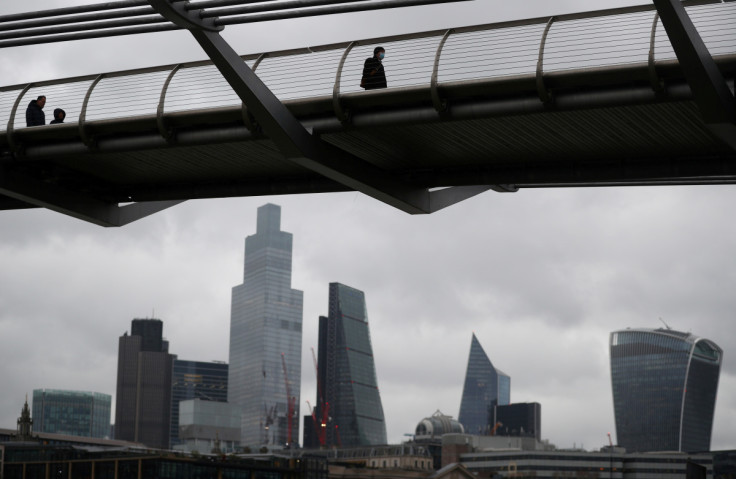UK Companies Face Biggest Monthly Surge In Borrowing Costs For Decades

Borrowing costs for UK companies have soared since the British government's mini-budget last week spooked markets, with data showing sterling corporate bonds suffering their biggest monthly selloff since at least the 1990s.
The Bank of England on Wednesday said it would start buying long-dated UK government bonds again to try to stabilise the market in a dramatic 65 billion pound ($69.9 billion) intervention.
Sovereign gilt yields, which generally drive corporate borrowing costs, posted their biggest one-day fall in at least three decades after the BoE's announcement but remained well above their levels last Friday before the government said it would slash taxes.
Fund managers and industry experts said that even if the BoE's intervention calms markets further, sharply higher borrowing costs for companies are here to stay.
"It's too early to say this is over, there will potentially be more technical pressure across the market as everyone tries to raise liquidity," said Vanguard credit portfolio manager Sarang Kulkarni.
He said average yields in sterling corporate bond markets fell 10 to 15 basis points in the immediate aftermath of the BoE's announcement but remained near 7%, up from 5.5% earlier last week and 2% last year.
"Yields at 7% are a challenge for some companies, especially as we are going into a slowdown."
UK borrowing costs for investment-grade rated companies are higher than in the euro zone and United States, and are not that far below, for example, the euro zone's high-yield corporate issuers which offer average yields of around 8.5%.
"There is great concern about financing conditions, and it's not just about cost, it's about availability too," S&P Global's Regional Credit Conditions Chair Paul Watters said, adding that the 242 high-yield companies S&P rates in the UK would feel the most pain.
"If you are a company with 10 times debt-to-ebitda and you have interest rates going up 5%, that is going to have a huge impact. That is 50% of your ebitda out the window right away," he added, referring to a firm's earnings before interest, taxes, depreciation and amortisation.
BOND PRICES TUMBLE
Sterling corporate bond prices, which move inversely to yields, have tumbled.
The Markit iBoxx Sterling Corporate Bond Index has fallen 10.2% so far in September to a price of 296 -- its lowest since early 2016 and on course for the biggest monthly slide since at least 1999.
The ICE BofA Sterling non-Gilt Index, which measures the prices of investment grade debt, is also headed for its worst monthly performance since index records began in 1997, down 9.8% to the lowest since late 2015.
Jim Leaviss, a fund manager at M&G Investments in London, said that while credit spreads across markets have been widening as investors brace for central banks rate hikes to fight inflation, there was "definite underperformance" in the UK.
"If we are expecting 3% (default rate) in Europe it could be a bit higher in the UK," S&P Global's Watters said. "Markets get to the point where the greatest fear is fear itself."
Some experts said British pension funds, which have been dumping gilts to meet collateral calls triggered by soaring long-dated bond yields, may have been selling their UK corporate bond holdings too, exacerbating the selloff.
($1 = 0.9295 pounds)

© Copyright Thomson Reuters 2024. All rights reserved.




















